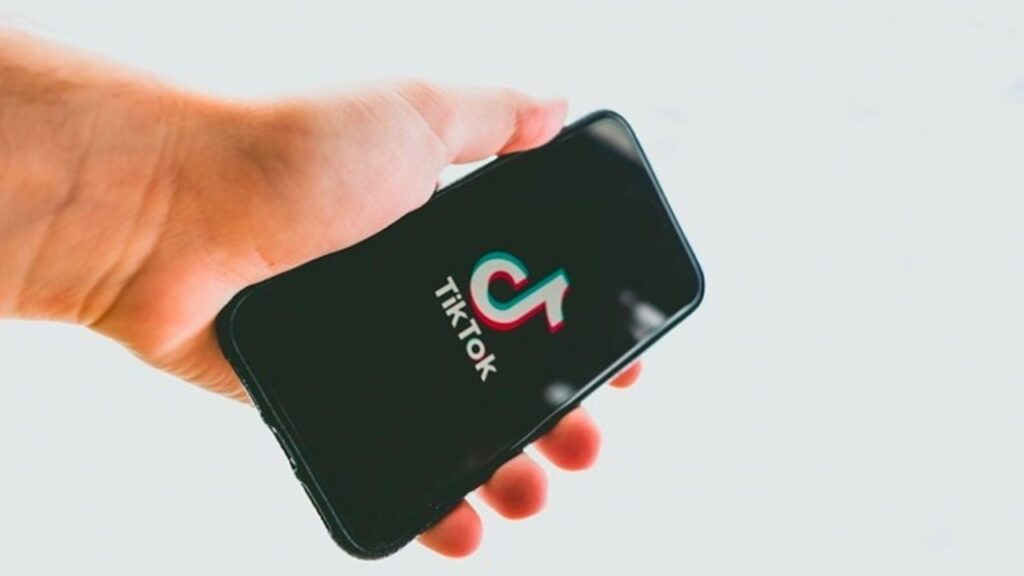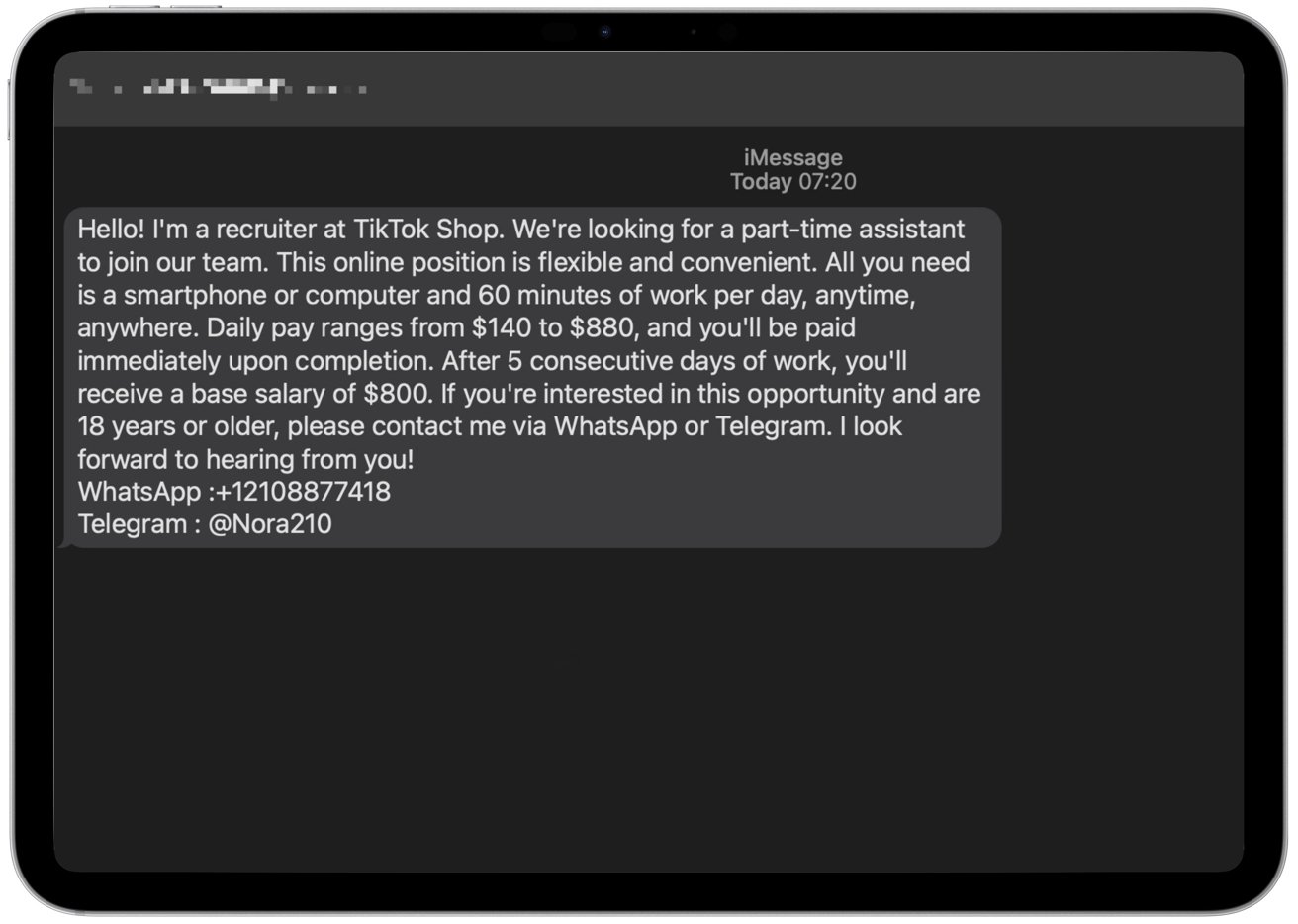
Scam job offers are popping up in text messages promising fast money for easy work, but clicking the wrong one can end up costing you far more than it pays. Here’s how to spot one.
The message claims you can earn hundreds of dollars a day from home, often by doing simple tasks online. But behind the pitch is a scam that can cost you far more than time.
The messages come without warning and may look legitimate, but just at a glance. They’re often unsolicited, vague, are packed with spelling and grammatical errors. They’re also generally too good to be true — and they’re increasingly common.
Thankfully, you can reduce your risk by using iOS 26’s spam filters and message screening tools to help block suspicious senders.
In one example several of us have received in recent days, a message came in claiming to be from the TikTok Shop and offered hundreds of dollars a day for an hour of “online assistance” work.
It’s not the shop that’s bogus. TikTok Shop is a real e-commerce feature used by creators and businesses to sell products.
However, scammers are using the name to make their pitch sound official. It’s working, too, as the fake messages keep coming despite TikTok itself warning that it doesn’t recruit this way.
How the scam hooks victims
The message says people can earn $140 to $880 a day by completing simple tasks, with an $800 bonus promised after five days. That’s nearly 20 times the federal minimum wage at the low end and over 120 times at the high end.
It sounds appealing, especially since the only requirement listed is being over 18 and having a smartphone or computer. But there’s no job title, no details about what the work involves, and the sender urges people to reply via WhatsApp or Telegram.
These private messaging apps give scammers more control and make it harder for victims to trace or report them.

An example of the scam text
Once someone has been tricked into replying, the scammers start with small online tasks like liking videos or following accounts. Some victims receive a token payment to build trust.
That’s followed by a request for a fee to unlock a bigger payout, or an invitation to send cryptocurrency for the promise of higher earnings. After the payment is sent, the scammers cut off contact and vanish.
Part of a broader scam network
Cybersecurity firm CTM360 recently revealed a global scam operation called FraudOnTok. The group has registered more than 15,000 fake TikTok Shop domains that mimic real sites and ads.
These pages are used to steal credentials, install malware, and trick people into sending cryptocurrency, according to The Hacker News.
FraudOnTok also uses AI-generated TikTok videos featuring fake influencers and brand ambassadors to make the scam feel legitimate.
How to protect yourself
We know about our readers in aggregate. On the average, you’re well-educated and aren’t brand-new to computing. That doesn’t mean that you don’t have relatives that are less savvy than you. Send them this article.
Any job offer that arrives by text, with no context and a huge payout, is almost always bogus. Real employers don’t ask for money to unlock wages. No job should require sending cryptocurrency to the employer to get started.
Apple’s iOS 26 spam filtering tools can help block messages from unknown senders. If one still gets through, you can forward it to 7726 (SPAM) to report it to your carrier.
Or, you can follow Apple’s steps for reporting suspicious texts and emails.
Scams like these can cost more than money, compromising accounts and personal information. For more ways to spot and avoid online cons, AppleInsider has a guide to spot and avoid gift card scams.



